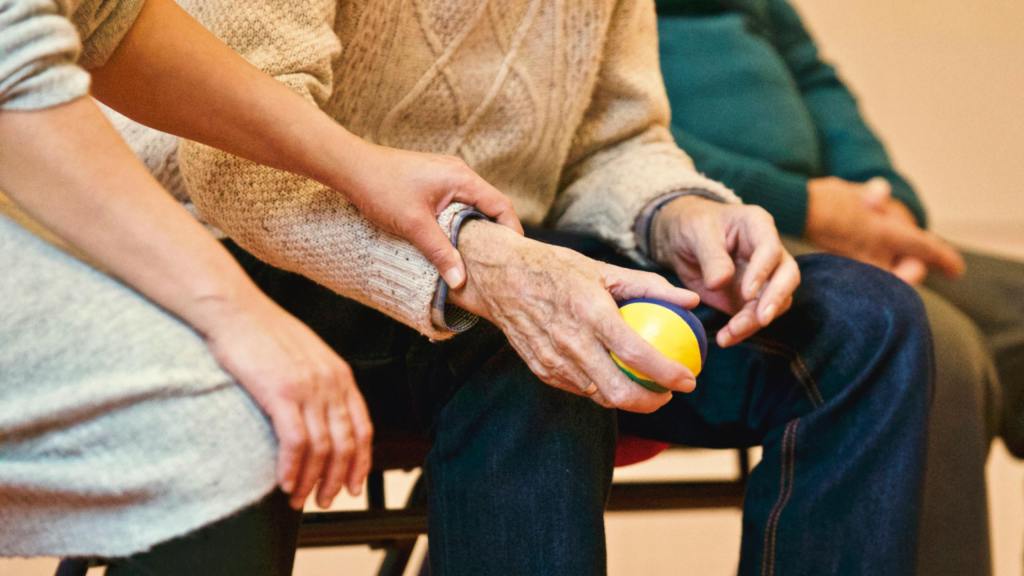
How to Determine if Your Aging or Elderly Parents Need Help
Most adult children of aging or elderly parents don’t want to think about their parents’ health declining to the point at which they can no longer safely care for themselves. Often, decline is gradual, and it can also be subtle. If you don’t live near your parents, it can be particularly challenging to pick up on clues that can indicate declining health.
If your parents are advancing in age and you haven’t given much thought to the possibility that they may require additional help with the daily activities of living, such as bathing and dressing or cleaning and meal preparation, it’s time for an assessment. There are several warning signs that can indicate that an aging or elderly person needs help. Start paying closer attention and watching for these subtle clues.
Cognitive and Memory Problems
It’s common for older adults to experience periodic memory problems. Even young adults occasionally forget where they put their car keys. However, recurring or frequent memory problems can be a warning sign of the onset of Alzheimer’s disease or dementia. If your parent begins to forget where they are or where their home is, or they frequently forget to take their medication or turn off the stove, it might be time to seek additional help.
Some warning signs that may indicate a more serious decline in cognitive abilities such as memory include:
- Sleeping through most of the day
- Sudden changes in sleeping patterns in general
- Confusion or forgetfulness when performing familiar tasks
- Missing appointments and commitments
- Not recognizing familiar people
- Using poor judgement (giving out credit card or banking details to unverified callers, etc.)
- Taking incorrect medication dosages or forgetting to take medications
- Mood swings or sudden shifts in personality
- A decreased interest in once-enjoyable activities and hobbies
- Sadness or depression; frequent fatigue
A parent forgetting to take a single dose of medication on a day that they’re busy or distracted typically isn’t a cause for concern. You want to watch for patterns, multiple warning signs, or even a single warning sign that occurs with increasing frequency.
Changes in Physical Capabilities
Many chronic health conditions can lead to a decline in physical function over time. Arthritis can make it difficult for a person to walk up and down stairs, dress themselves, or prepare meals. Heart disease can make it challenging for a person to clean their home or maintain their lawn, as extended periods of physical activity can become too exhausting. A history of stroke may have left your parent with weakness in one or both sides of the body.
If your aging parent has a chronic health condition, educate yourself on the symptoms and know how they may impact your parent’s ability to perform everyday tasks. Watch for:
- Problems with balance (holding on to walls and furniture to navigate through the home)
- Difficulty navigating stairs or narrow hallways
- Problems getting up from a seated position
- Limping or expressions of pain when moving
- Slips and falls
- Unexplained bruises or other injuries
- Sudden loss of appetite or significant weight loss
- Seeming decline in vision and/or hearing
Beyond these obvious signs of physical impairment, there are some more subtle signs that an aging adult is experiencing a decline in their physical abilities, such as:
- Poor personal hygiene (may indicate that a person is avoiding showering due to difficulties)
- Lack of fresh food in the fridge
- A cluttered or dirty home
- Piles of unlaundered clothing
- Stacks of unpaid bills or unopened mail
If you notice one or more of these signs, it may be time to have a conversation with your parents. They may not readily admit that they’re avoiding showering because they’ve slipped and fallen in the bathroom or have difficulty getting in and out of the bathtub, but if they don’t have a reasonable explanation for neglecting typical household and personal hygiene responsibilities, it can be a clue that something is amiss.
What to Do If You Suspect Your Aging Parents Need Help
Talking to your parents about seeking additional help for them at home is not an easy conversation for most people to have. Your parents probably don’t want to give up their independence; it may be difficult for you as well to acknowledge that the people who cared for you for your whole life may now require someone to help care for them. While difficult, it’s important to bring your parents into the conversation so that you can ensure that their needs are adequately met while their wishes are respected as much as possible.
When you first become concerned after noticing some of these warning signs, it’s a good idea to talk to your parent’s healthcare provider to rule out medical conditions or medication side effects that can explain the symptoms you’ve noticed. If an underlying health condition is to blame, there may be treatment options that can reduce or eliminate symptoms. Likewise, there may be alternative medications with fewer side effects if a medication is believed to be the root of the problem.
If your parent continues to experience any combination of these warning signs after other causes have been ruled out or eliminated, it’s time to consider seeking additional help for your parents. Your parents’ healthcare provider may be able to direct you to local resources or make referrals to services that can help. You can also reach out to your local Area Agency on Aging. Some agencies can connect you with other resources or arrange for a needs assessment for your aging parent, which provides a third-party, expert evaluation of your parent’s needs.
Armed with this information, you’ll be better able to help your parents make the right decision about their care, whether that means considering a move to a senior living community, making the decision to become a family caregiver, or arranging for in-home care services on a full- or part-time basis.
More insights like this:
-

Helping an Aging Loved One Through Declining Mental Health
Read more: Helping an Aging Loved One Through Declining Mental HealthMental health challenges can impact anyone at any time of life. However, older adults tend to be more vulnerable to depression and other mental illnesses, on average, with 14% of adults aged 60 or older suffering from a mental disorder. “If you recognize or hear from a loved one that their day-to-day life is significantly…
-

Delirium vs. Dementia: Causes, Symptoms, Treatments, and Preventative Measures
Read more: Delirium vs. Dementia: Causes, Symptoms, Treatments, and Preventative Measures5 Key Things Family Caregivers Need to Know About Delirium and Dementia Onset and Course Are Key Clues That Caregivers Should Watch Closely Delirium develops suddenly (hours or days) and often fluctuates; dementia progresses gradually over months or years. Acute changes in thinking or attention should trigger urgent medical evaluation. Delirium and Dementia…
-

7 Immune System Booster Tips for Seniors
Read more: 7 Immune System Booster Tips for SeniorsThe immune system is the body’s first line of defense against viruses and infections, but the aging process can weaken the immune system. Throughout the COVID-19 pandemic, this became an increased concern for the caregivers of older or immunocompromised adults, as the risk of more severe symptoms and outcomes was much higher in these…